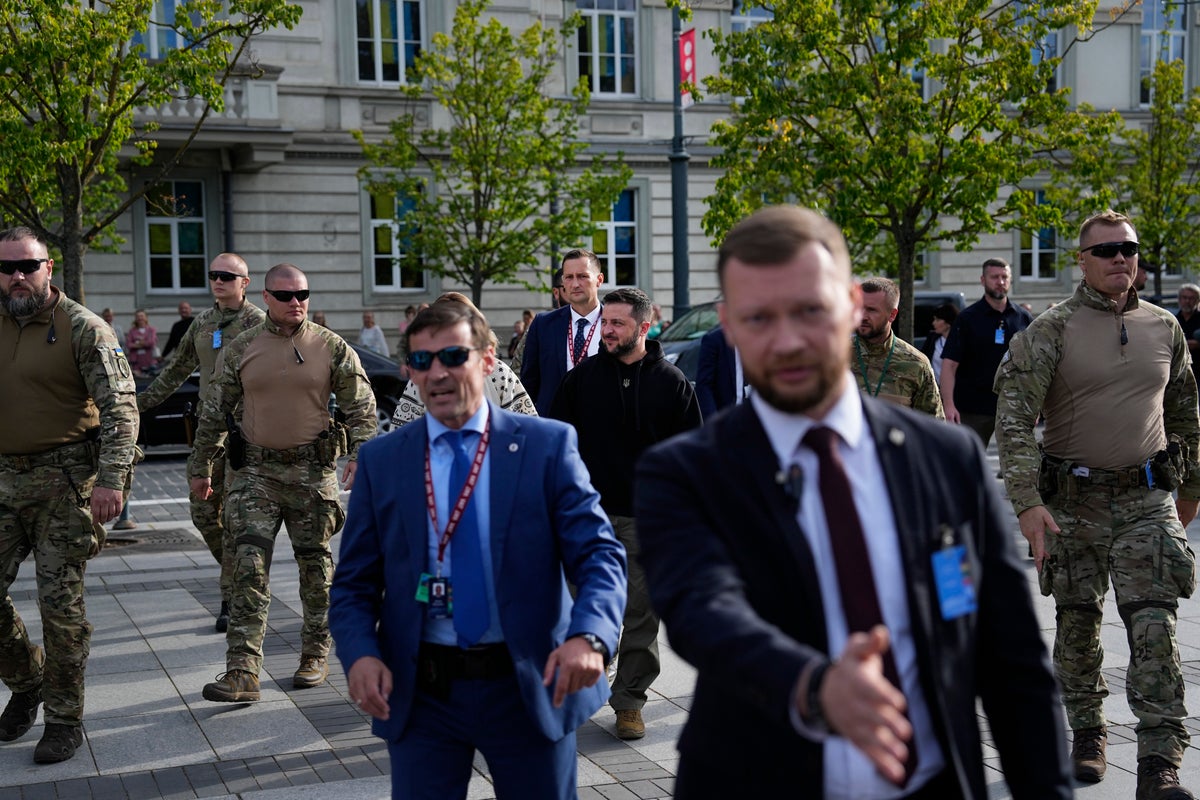
NATO leaders prepared to provide Ukraine with more military assistance for fighting Russia but only vague assurances of future membership as the alliance's summit draws to a close on Wednesday.
A draft agreement states that Ukraine can join NATO “when allies agree and conditions are met." The ambiguous outcome reflects the challenges of reaching consensus among the alliance's current members while the war continues, and it is likely to leave Ukrainian President Volodymyr Zelenskyy unsatisfied.
Although Zelenskyy planned to attend the summit's final day, he has been sharply critical of what he described as NATO's “absurd” reluctance to set a timeline for his country's acceptance into the alliance.
In essence, Western countries are willing to keep sending weapons to help Ukraine do the job that NATO was designed to do — hold the line against a Russian invasion — but not allow Ukraine to join its ranks and benefit from its security.
Zelenskyy said in a Tuesday speech in a town square in Vilnius that he had “faith” in NATO, but that he would “like this faith to become confidence, confidence in the decisions that we deserve, all of us, every soldier, every citizen, every mother, every child.”
"Is that too much to ask?” he added.
Symbols of support for Ukraine are common around the city, where the country's blue-and-yellow flags hang from buildings and are pasted inside windows. One sign cursed Russian President Vladimir Putin. Another urged NATO leaders to “hurry up” their assistance for Ukraine.
However, there's been more caution inside the summit itself, especially from U.S. President Joe Biden, who has explicitly said he doesn't think Ukraine is ready to join NATO. There are concerns that the country's democracy is unstable and its corruption remains too deeply rooted.
In addition, Western nations fear sparking a wider conflict. Several leaders, from German Chancellor Olaf Scholz to Estonian Prime Minister Kaja Kallas, said it was too risky to admit Ukraine during the war.
Under Article 5 of the NATO charter, members are obligated to defend each other from attack, which could swiftly draw the U.S. and other nations into direct fighting with Russia.
However, defining an end to hostilities is no easy task. Officials have declined to define the goal, which could suggest a negotiated ceasefire or Ukraine reclaiming all occupied territory. Either way, Putin would essentially have veto power over Ukraine’s NATO membership by prolonging the conflict.
Wednesday’s commitments were to include a new “framework” from Group of Seven nations acting on the margins of the summit that would provide for Ukraine’s long-term security.
The British foreign ministry said in a statement the G7 joint declaration would “set out how allies will support Ukraine over the coming years to end the war and deter and respond to any future attack. It is the first time that this many countries have agreed a comprehensive long-term security arrangement of this kind with another country.”
British Prime Minister Rishi Sunak said in a statement that supporting Ukraine’s “progress on the pathway to NATO membership, coupled with formal, multilateral, and bilateral agreements and the overwhelming support of NATO members will send a strong signal to President Putin and return peace to Europe.”
Although international summits are often tightly scripted, this one has seesawed between conflict and compromise.
At first leaders appeared to be deadlocked over Sweden’s bid for membership in the alliance. However, Turkey unexpectedly agreed to drop its objections the night before the summit formally began.
The deal led to boasts of success from leaders who were eager for a display of solidarity in Vilnius.
“This summit is already historic before it has started,” NATO Secretary-General Jens Stoltenberg said.
Jake Sullivan, Biden’s national security adviser, told reporters that “rumors of the death of NATO’s unity were greatly exaggerated.”
Erdogan has not commented publicly on the deal over Sweden's membership, even during a Tuesday evening meeting with Biden where Biden referenced “the agreement you reached yesterday."
However, Erdogan appeared eager to develop his relationship with Biden. He said previous meetings were “mere warm-ups, but now we are initiating a new process.”
The Turkish president has been seeking advanced American fighter jets and a path toward membership in the European Union. The White House has expressed support for both, but publicly insisted that the issues were not related to Sweden’s membership in NATO.







